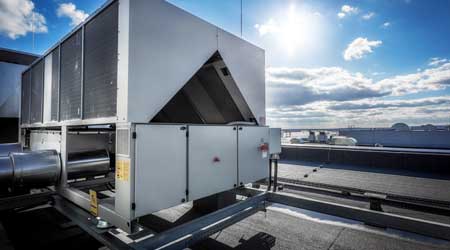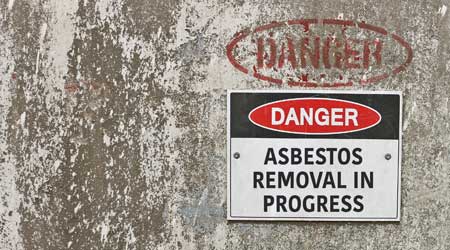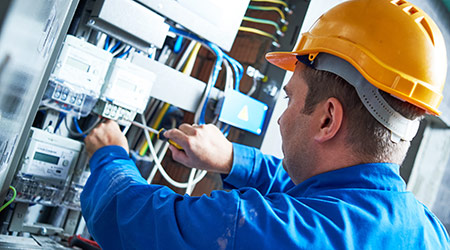
What Role Does HVAC Play in Reducing Coronavirus Risks in Buildings?
December 17, 2020
As facility managers consider their reopening strategies, of course cleaning, PPE, and social distancing policies must be top of mind. But the role of the HVAC system cannot be ignored either. Can improved air filtration and better ventilation actually help reduce the spread of coronavirus? Or does recirculated air — as from air conditioning systems — help spread the virus? Those have been the million dollar questions really since the start of pandemic.
First the bad news: An alarming study published in February showed that diners in a Wuhan restaurant contracted the coronavirus with an assist from a building’s air conditioning system. Nine diners were infected by an asymptomatic carrier who was sitting near an air conditioning vent.
But as scary as that seems, and while FMs should consider that air condition can spread particles farther, the good news is that the results of that study may not translate well to an office building or school or other space where social distancing practices are being adhered to. Infectious disease expert Amesh A. Adalja, MD, senior scholar at the Johns Hopkins Center for Health Security is quoted in Heath: “I don’t necessarily think that this study is representative of transmission risk. However, it is important to be mindful of air flow patterns, especially if they are strong and create a jet stream for droplets.”
So what really should FMs focus on in regards to making sure their HVAC systems are safe? The Centers for Disease Control and Prevention recommends ensuring that all HVAC systems are recommissioned to ensure proper operation in accordance with ASHRAE Standard 120-2018. As well, CDC recommends increasing circulation of outdoor air as much as possible through open doors and windows.
Anisa Heming, director of the Center for Green Schools, agrees, but with a note of caution: “In general, more fresh air the better. But there is some question about forced air systems, and whether air movement is not a good thing.” She says FMs should look for opportunities to flush air when space is not occupied if possible. She also says there is a lot of uncertainty right now about what can kill the virus in terms of filtration in an air handling unit. But generally, higher MERV rates for HVAC filters will be better.
ASHRAE has produced a wealth of resources and guidance for all types of buildings in regards to HVAC and coronavirus. That is a great place to start for FMs with lingering HVAC questions.
This post was submitted by Greg Zimmerman, executive editor, Building Operating Management and FacilitiesNet.com.
Next
Read next on FacilitiesNet












